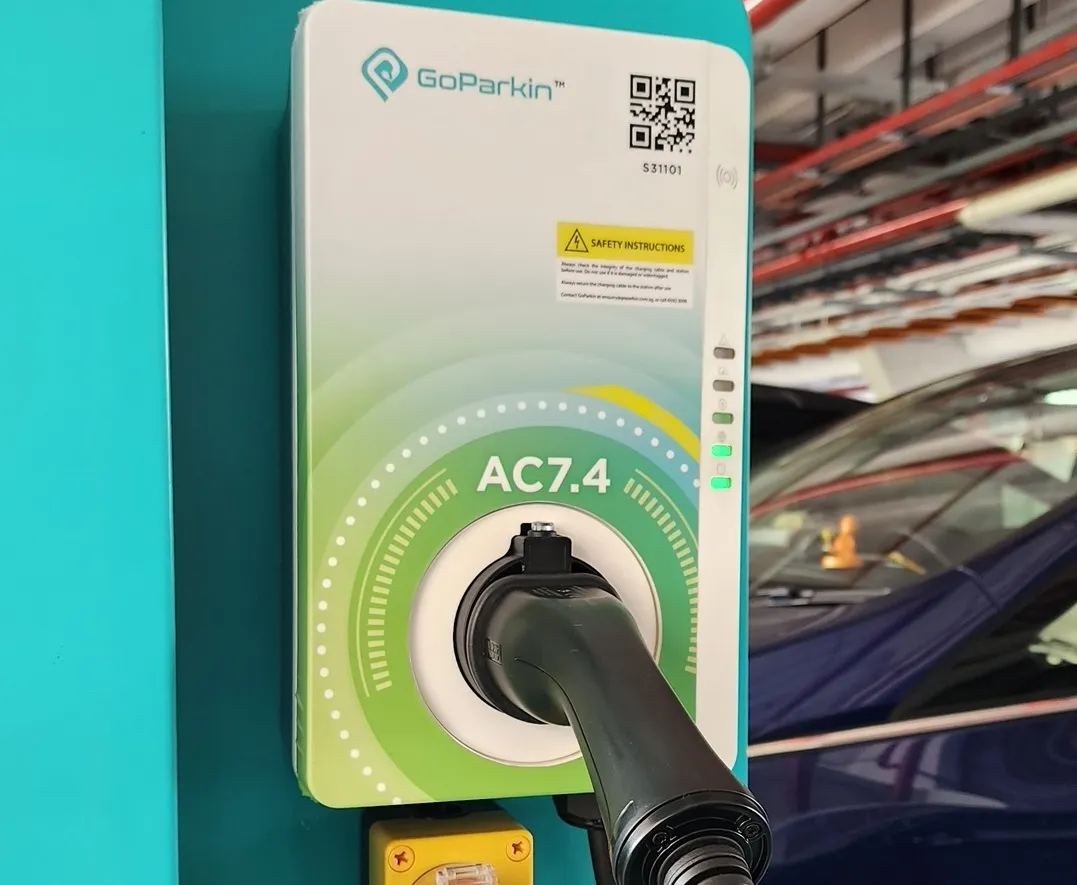
ST Engineering and Nanyang Technological University, Singapore (NTU Singapore) has deployed Singapore’s first integrated smart car park and electric vehicle charging system, GoParkin, on NTU’s main campus.
It allows EV users to park, charge and pay on a single mobile app, eliminating the need for separate parking and EV charging apps.
ST Engineering’s urban solutions business will build and operate the university’s campus-wide EV charging network, as part of NTU’s sustainability goals.
NTU is committed to achieving a 50% reduction in carbon emissions by 2035: EV users will be able to find available parking and EV charging points at NTU, charge their vehicle, monitor charging status, and make payment easily through the app.
Six EV charging points have been installed at NTU’s Jurong campus, with eight more to be rolled out at four more car parks by June 2023.
Most car parks will be fitted with 11kW AC chargers while one will have a 120kW DC charger for fast charging.
There are plans to extend the EV charging network to more car parks to keep pace with future charging demand.
"Our integrated solution benefits both motorists and car park operators, addressing the pain point of having to use multiple parking and charging platforms," says Ang Kim Siah, head of mobility road, urban solutions, ST Engineering.
"With our expertise in smart car park and EV charging systems, we are well-positioned to provide the market with an integrated, reliable and cost-effective solution that addresses the evolving challenges of drivers, car park owners and operators sustainably."
Tan Aik Na, senior vice president (administration), NTU Singapore, said: “The hassle-free park and charge system will bring greater convenience as EV adoption increases on our campus.”
In 2020, ST Engineering and NTU launched Singapore’s first barrier-free smart car park system at NTU’s Jurong campus and is currently operational at all 59 NTU car parks across its Jurong, Novena and one-north campuses, covering over 4,000 parking lots.
With ANPR technology, GoParkin EV users at NTU can automatically start a charging session when the charging cable is connected to their vehicle, removing the need to manually activate.
To eradicate EV charge hogging, ANPR can also detect and identify EVs that have completed their charging session but continue to occupy the lot, as well as non-EVs that occupy an EV charging lot.
Licence plates are automatically routed to the parking enforcement team for follow-up.
In addition to the cost-effectiveness of ANPR, the cloud-based GoParkin system provides operational and maintenance cost savings to NTU in various ways, ST Engineering says.
These include interoperability with other EV charging hardware, and the provision of a real-time, centralised view of EV charging and car park operations across NTU’s locations on a unified platform.
The system also provides advanced analytics that generate insights such as EV charging patterns to optimise operations and revenue streams, to facilitate planning of future services.










